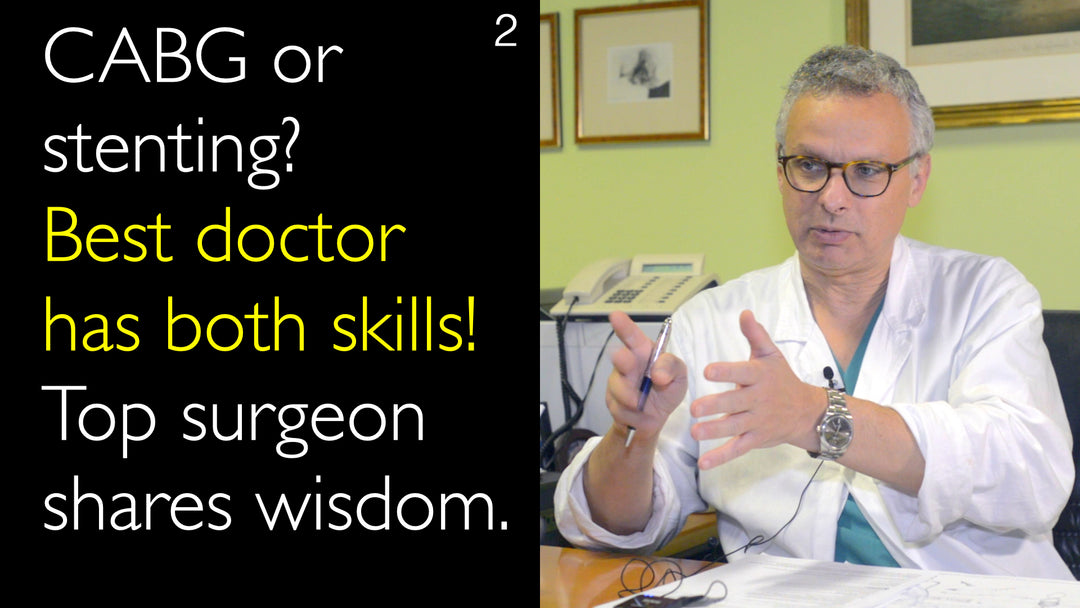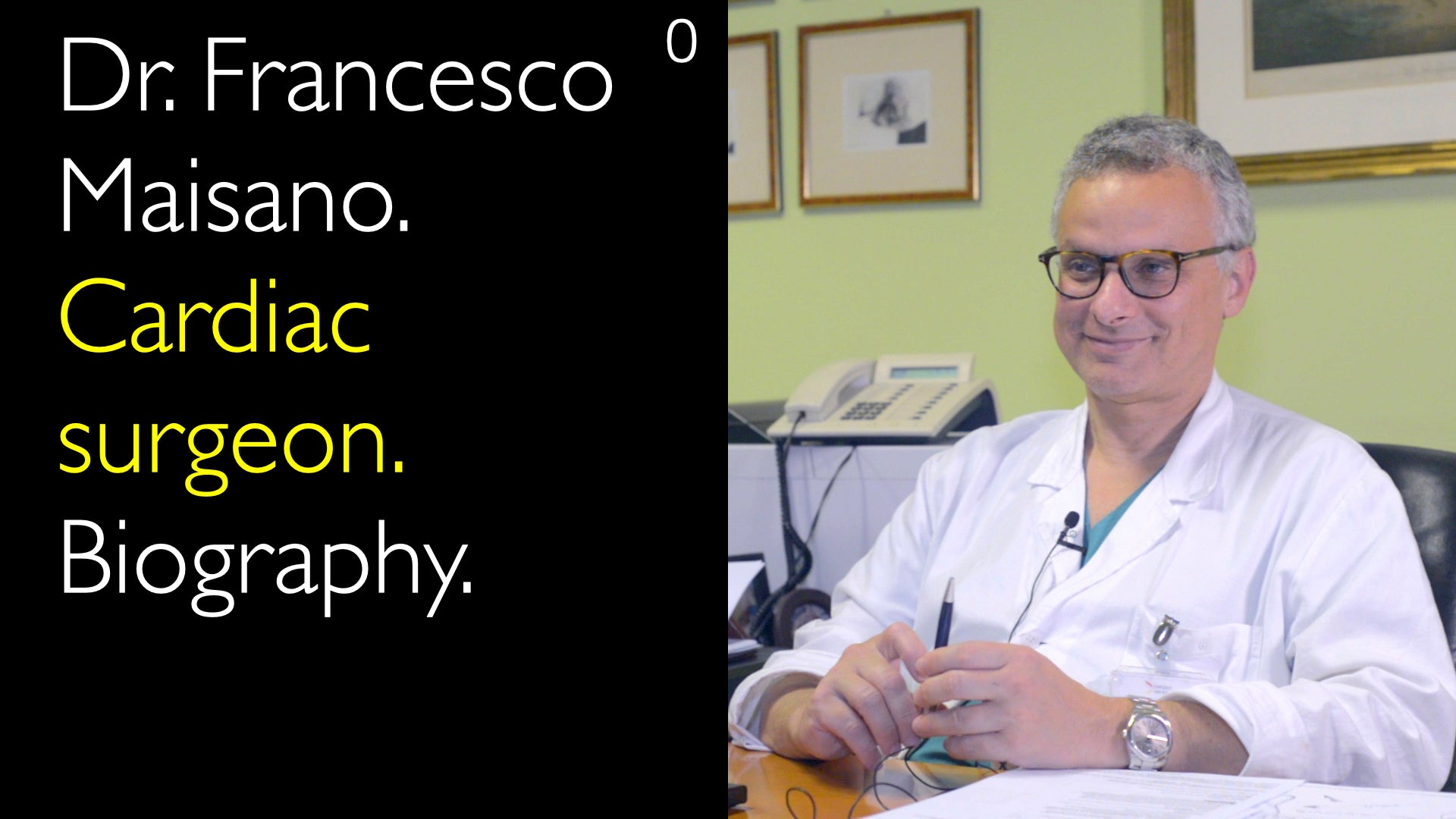O renomado especialista em cirurgia cardíaca e cardiologia intervencionista, Dr. Francesco Maisano, explica como a combinação de técnicas cirúrgicas e procedimentos por cateter resulta em melhores desfechos para os pacientes. Ele detalha a evolução do tratamento valvar cardíaco, o impacto de novas tecnologias, como o implante transcateter de válvula aórtica (TAVI), e a necessidade crítica de um treinamento médico moderno que supere as barreiras tradicionais entre especialidades. Dr. Francesco Maisano ressalta que o objetivo final é oferecer um espectro completo de opções terapêuticas, promovendo a concorrência que reduz a mortalidade e aumenta a segurança para todos os pacientes.
Integração entre Cirurgia Cardíaca e Cardiologia Intervencionista para o Cuidado Ideal do Paciente
Navegar para a Seção
- Abordagem Híbrida da Equipe Cardíaca
- Evolução dos Procedimentos Cardíacos
- Impacto do TAVI nos Padrões Cirúrgicos
- Capacitação Cruzada dos Futuros Especialistas
- Tecnologia Impulsionando a Segurança
- Transcrição Completa
Abordagem Híbrida da Equipe Cardíaca
O Dr. Francesco Maisano destaca uma mudança de paradigma na medicina cardiovascular, deslocando o foco do procedimento em si para o objetivo final de salvar vidas e melhorar a qualidade de vida. Ele ressalta que não existe uma solução única adequada para todos os pacientes, tornando essencial um espectro completo de opções terapêuticas para garantir a segurança. Essa filosofia se materializa no modelo híbrido de equipe cardíaca, no qual a colaboração entre cirurgiões cardíacos e cardiologistas intervencionistas assegura que a melhor decisão seja tomada para cada indivíduo, e não apenas a técnica mais familiar.
Evolução dos Procedimentos Cardíacos e Evidências
O Dr. Maisano contextualiza a história da cirurgia cardíaca, estabelecida na década de 1950, que acumulou vasta experiência de longo prazo, embora sem a coleta de dados rigorosa observada atualmente. Ele explica que, por décadas, os procedimentos cirúrgicos eram o padrão de tratamento, sem alternativas, o que dispensava a necessidade de estudos comparativos. O advento de novas tecnologias transcateter alterou fundamentalmente esse cenário, exigindo uma reavaliação criteriosa de todas as opções terapêuticas, com desfechos analisados por laboratório central — algo antes incomum.
O Impacto do TAVI nos Padrões Cirúrgicos
A introdução do implante de válvula aórtica transcateter (TAVI) serve como exemplo primordial de como a nova tecnologia desafia e aprimora as práticas estabelecidas. O Dr. Francesco Maisano observa que a troca valvar aórtica cirúrgica nunca foi submetida ao escrutínio intenso que agora enfrenta com os ensaios de TAVI. Essa competição traz novos insights e oportunidades, elevando, em última análise, todo o campo do cuidado cardíaco. O Dr. Maisano compartilha sua perspectiva única como cirurgião cardíaco plenamente treinado que posteriormente aprendeu procedimentos endovasculares, descobrindo que as habilidades de cada disciplina beneficiam profundamente a outra.
Capacitação Cruzada da Próxima Geração de Especialistas
Um grande desafio identificado pelo Dr. Maisano é modernizar a educação médica para formar os especialistas cardiovasculares do futuro. O ritmo acelerado das mudanças tecnológicas significa que um médico não pode basear toda a sua carreira apenas no que aprendeu na faculdade. As instituições acadêmicas devem desenvolver trajetórias educacionais flexíveis que ofereçam um novo conjunto de habilidades combinadas. A própria descrição do cargo para um médico cardiovascular está evoluindo, exigindo a convergência dos campos cirúrgico e intervencionista para fertilização cruzada e a criação de um entendimento comum voltado ao cuidado ideal do paciente.
Como a Tecnologia e a Competição Impulsionam a Segurança do Paciente
A flexibilidade proporcionada por múltiplas opções terapêuticas resulta diretamente em melhores desfechos para o paciente. O Dr. Francesco Maisano cita dados que mostram que os riscos de mortalidade em procedimentos como intervenções na válvula mitral diminuem anualmente. Essa melhoria não se limita aos pacientes submetidos a novos procedimentos endovasculares; beneficia também aqueles em cirurgia aberta tradicional. A competição para ser menos invasivo, mais seguro e mais eficaz eleva o padrão para todos. Isso permite que os médicos personalizem o tratamento, oferecendo opções menos invasivas para pacientes frágeis e procedimentos mais duráveis e consagrados para aqueles que podem tolerá-los.
Transcrição Completa
Dr. Anton Titov: É muito interessante que você tenha mencionado a combinação de habilidades de um cirurgião cardíaco e de um cardiologista intervencionista. Tive uma conversa muito interessante em Boston, no Brigham and Women's Hospital, com o Professor Tsuyoshi Kaneko, sobre a Bolsa Dr. Michael Davidson. Ela foi estabelecida em memória do Dr. Michael Davidson, que se dedicou tanto à cardiologia intervencionista quanto à cirurgia cardíaca. Assim, um médico compreende a melhor abordagem para cada paciente, em vez de partir de uma técnica cirúrgica ou intervencionista específica. É algo que você mencionou antes: "Não é como fazemos as coisas, mas como tomamos a decisão correta." Acho que isso é algo que você destaca em sua própria carreira.
Dr. Francesco Maisano: Você aponta um aspecto muito importante de nossa profissão. Acho que frequentemente nos concentramos no que fazemos, e não no objetivo do que estamos fazendo. O objetivo é salvar vidas e melhorar a qualidade de vida. Esse é o pano de fundo de qualquer intervenção. Há muitas maneiras de alcançar esse objetivo. Provavelmente, não há uma solução única perfeita para todos os pacientes. Sempre há um trade-off.
Ter o espectro completo de opções terapêuticas cria um ambiente mais seguro para o paciente. Se bem adotada e organizada, essa abordagem de tratamento pode proporcionar melhores desfechos. Ainda acredito que precisamos aprender muito. Estamos em uma fase de transição, com diferentes opções de tratamento. Ainda há muitas controvérsias.
Não se esqueça de que a cirurgia cardíaca foi estabelecida na década de 1950. Temos experiência de muito longo prazo, embora a coleta de dados não tenha sido inicialmente tão científica. Na época, não havia alternativas, portanto, não havia motivo para fazer estudos comparativos entre a cirurgia cardíaca e outras opções. Após muitos anos, os procedimentos cirúrgicos cardíacos tornaram-se padrão, de modo que não havia necessidade de testá-los novamente.
Com o surgimento de novas tecnologias, começamos a ter essa discussão. Tomemos como exemplo a troca valvar aórtica transcateter, chamada de TAVI na Europa ou TAVR nos Estados Unidos. O TAVI é uma alternativa à troca valvar aórtica cirúrgica. Antes do TAVI, não havia estudos sobre a cirurgia valvar aórtica com a rigidez de hoje. Portanto, não estudamos o TAVI com desfechos adjudicados por laboratório central antes do desafio trazido pela nova tecnologia.
Em geral, acredito que a nova tecnologia traz novos insights e oportunidades, melhorando até mesmo a cirurgia cardíaca. Pessoalmente, tenho uma perspectiva muito especial, pois comecei os procedimentos cardíacos endovasculares após estar plenamente treinado como cirurgião cardíaco. Descobri que, por um lado, foi relativamente simples aprender os procedimentos endovasculares. Ao mesmo tempo, muito do conhecimento da área de cardiologia endovascular se mostrou muito útil na cirurgia aberta e na cirurgia cardíaca minimamente invasiva.
Portanto, vejo a vantagem da convergência dos dois campos em um único. A cirurgia cardíaca e a cardiologia intervencionista precisam se fertilizar mutuamente. Isso acontece cada vez mais a cada ano. Precisamos garantir que o que aprendemos nas duas áreas se torne um entendimento comum, para encontrarmos as soluções certas para nossos pacientes.
Também devemos encontrar a maneira certa de treinar os cirurgiões e cardiologistas intervencionistas do futuro, pois isso já se tornou uma questão urgente. Quem fará isso? Qual será a trajetória educacional para fornecer às novas gerações de médicos o melhor pacote formativo? Qual é a descrição do cargo para um médico cardiovascular adequadamente treinado? Isso já é uma questão hoje.
Dr. Anton Titov: Tudo isso é muito importante, pois quebrar os silos na medicina é uma tarefa crucial. Acho que sua carreira ilustra claramente a importância disso para o benefício do paciente, que é o objetivo final.
Dr. Francesco Maisano: Absolutamente. Este é um dos maiores desafios para as instituições acadêmicas — oferecer trajetórias educacionais modernas. Todos precisamos mudar a maneira como ensinamos nossa profissão. Precisamos entender que o ritmo das mudanças nas descrições de cargo é tão rápido que devemos ser flexíveis o suficiente para mudar de direção mesmo nos próximos dois ou três anos.
As coisas estão mudando tão rapidamente que você não pode mais exercer sua profissão da mesma forma que aprendeu na faculdade. Meu pai foi para a escola, tornou-se cirurgião e foi capaz de fazer quase as mesmas operações por toda a vida. Só no final da carreira, lembro-me de ele dizer que precisava aprender a ressecção endoscópica laparoscópica da vesícula biliar. Foi um pequeno desafio para ele.
Imagine hoje. Temos um procedimento que aprendi em cirurgia cardíaca: o fechamento da CIA (comunicação interatrial). Hoje, não posso mais ensinar isso aos meus fellows, cirurgiões em treinamento. Precisamos ser realmente flexíveis. A boa notícia é que toda essa flexibilidade, no final, melhora os desfechos dos pacientes e cria novas oportunidades.
No geral, se observarmos os dados, o risco de mortalidade em intervenções na válvula mitral, por exemplo, nos Estados Unidos, vem diminuindo ano a ano. A introdução de procedimentos cardíacos menos invasivos tem reduzido a mortalidade para meus pacientes. Isso é verdade não apenas para aqueles submetidos a procedimentos endovasculares, mas também para o tratamento cirúrgico aberto.
Porque, no geral, há uma competição para fazer cada vez melhor, ser menos invasivo e mais seguro. Quando se têm diferentes opções de tratamento, pode-se oferecer alternativas menos invasivas para pacientes mais frágeis e procedimentos mais testados pelo tempo para aqueles que toleram uma intervenção mais invasiva e durável.





